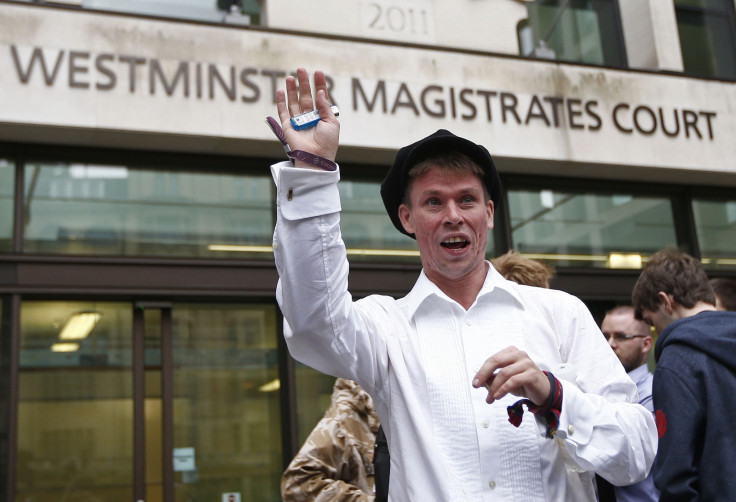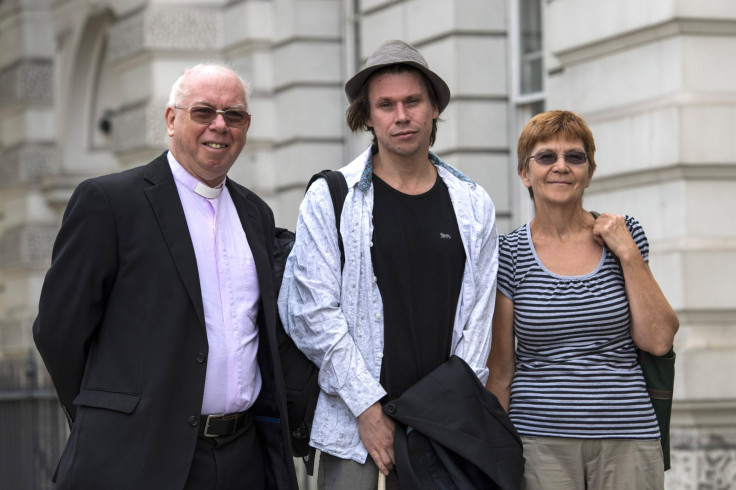Don't crucify our geeks: Why Lauri Love's extradition is setting a dangerous precedent
Accused of hacking FBI and Nasa systems, Love faces the prospect of life in a US jail.
Home Secretary Amber Rudd has signed the extradition order for a 31-year-old British man called Lauri Love, who is accused of hacking into the systems of the FBI, Nasa, and the US Federal Reserve, and stealing the personal details of 23,000 employees at the same time.
If convicted, Love faces the prospect of spending the rest of his life in jail in the US.
While on the face of it, this may seem like a straightforward decision, what makes this case different, however, is the fact that Love suffers from Asperger's syndrome, a brain disorder that significantly affects social skills.
The threat of having to spend the rest of his life in jail has led Love to say that, if he is forced to go to the US, he will take his own life.
Along with Asperger's, Love suffers from eczema, psychosis and depression. He has twice begun courses at the University of Nottingham and Glasgow University — but dropped out on both occasions due to physical and mental breakdowns.
While Love still has recourse to appeal the extradition to the High Court, Supreme Court and potentially the European Court of Justice, he is now facing the very real prospect of being forced to travel to a country where he knows no one, spending years in jail before his cases come to trial and facing the future threat of solitary confinement.

On top of this, Love still doesn't know what charges he is going to face, and the US is under no obligation to furnish him or his lawyers with any details of evidence they may have against him.
And yet the UK is seemingly happy to send one of its citizens to the US. It is why those working to overturn the extradition order claim that sending Love to the US would be akin to torture — and it's hard to argue against it when you consider what has happened to others in similar positions to Love.
Aaron Swartz and Gary McKinnon
Aaron Swartz, a hugely talented coder and activist, took his own life at the age of 26 because of the threat of spending up to 35 years in jail and facing a fine of up to $1 million. His crime? Downloading academic journals from MIT that he believed should be available to everyone.
Swartz's family has described the loss as "the product of a criminal justice system rife with intimidation and prosecutorial overreach" over "an alleged crime that had no victims."

One of the biggest problems in dealing with crimes involving hacking is the Computer Fraud and Abuse Act (CFAA), an outdated piece of legislation that leads to over-prosecution because it allows victims to inflate the amount of damage done to them.
The result of these over inflated damages are sentences that are disproportionate to the crimes committed. Jeremy Hammond, a one-time Anonymous hacktivist is currently serving a 10-year prison sentence for his part in a 2011 cyberattack on global intelligence-gathering company Stratfor. Similar charges against his fellow Anonymous hacktivists tried in the UK led to much lighter sentences, while one hacktivist in Ireland avoided jail time altogether.
What is perhaps most confusing about the government's decision to grant the extradition order for Love is that four years ago it made exactly the opposite decision in an almost identical case.
In 2002, Scot Gary McKinnon was accused of perpetrating what was at the time called "the biggest military computer hack of all time." McKinnon was accused of hacking into dozens of US Army, Navy, Air Force, and Department of Defense computers, as well as 16 Nasa computers, causing hundreds of thousands of dollars worth of damage.
McKinnon, who also suffers from Asperger's and depression, battled his extradition to the US for a decade, before the then Home Secretary and current Prime Minister Theresa May ruled that to send McKinnon for trial in the US would be a breach of his human rights.
"After careful consideration of all of the relevant material, I have concluded that Mr McKinnon's extradition would give rise to such a high risk of him ending his life that a decision to extradite would be incompatible with Mr McKinnon's human rights," Theresa May said in her 2012 ruling.
So what has happened in the last four years?
Not only is the government seeking to push through this extradition, it is attacking Love's well-documented mental conditions. In seeking Love's extradition order earlier this year, the Crown Prosecution Service sought to undermine the credibility of medical experts who testified that he was unfit to stand trial in the US.
Love has made it clear that should all appeals fail and he is forced to travel to the US, he will feel as if he is left with no option but to take his own life.
When Theresa May rejected the extradition request for McKinnon, she introduced new rules designed to protect people like Lauri Love, rules which stated that any crime committed while the alleged perpetrator was physically in the UK, could be tried in the UK.

In the case of Love, the protection of those rules has been lost after they were interpreted by the Crown Prosecution Services and the judges.
Janis Sharp, McKinnon's mother knows only too well, the stress and pain that can be caused by the threat of extradition, which she calls a "cruel punishment".
"Lauri has not been convicted of any crime and extradition is a cruel punishment of man with Asperger's who is, after all, innocent until proven guilty, hopefully by a jury of his peers. We burned our witches. Don't crucify our geeks," Sharp said.
© Copyright IBTimes 2025. All rights reserved.






















